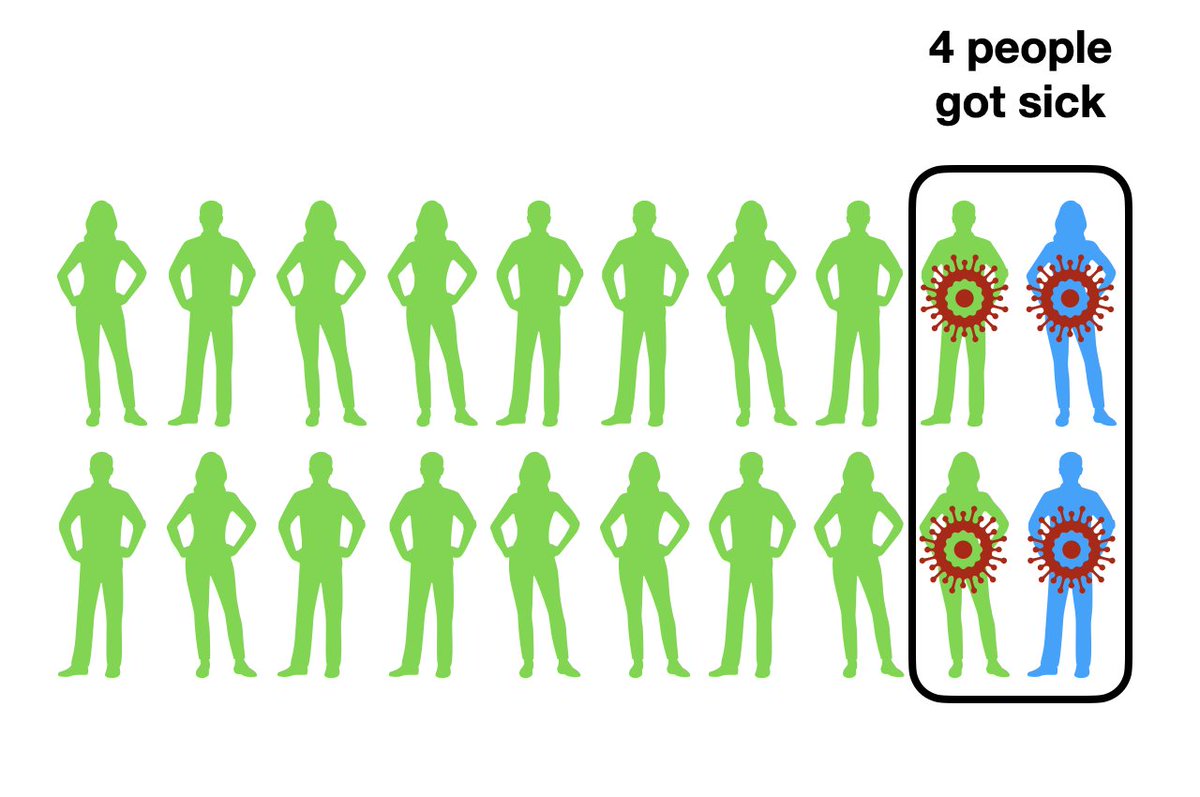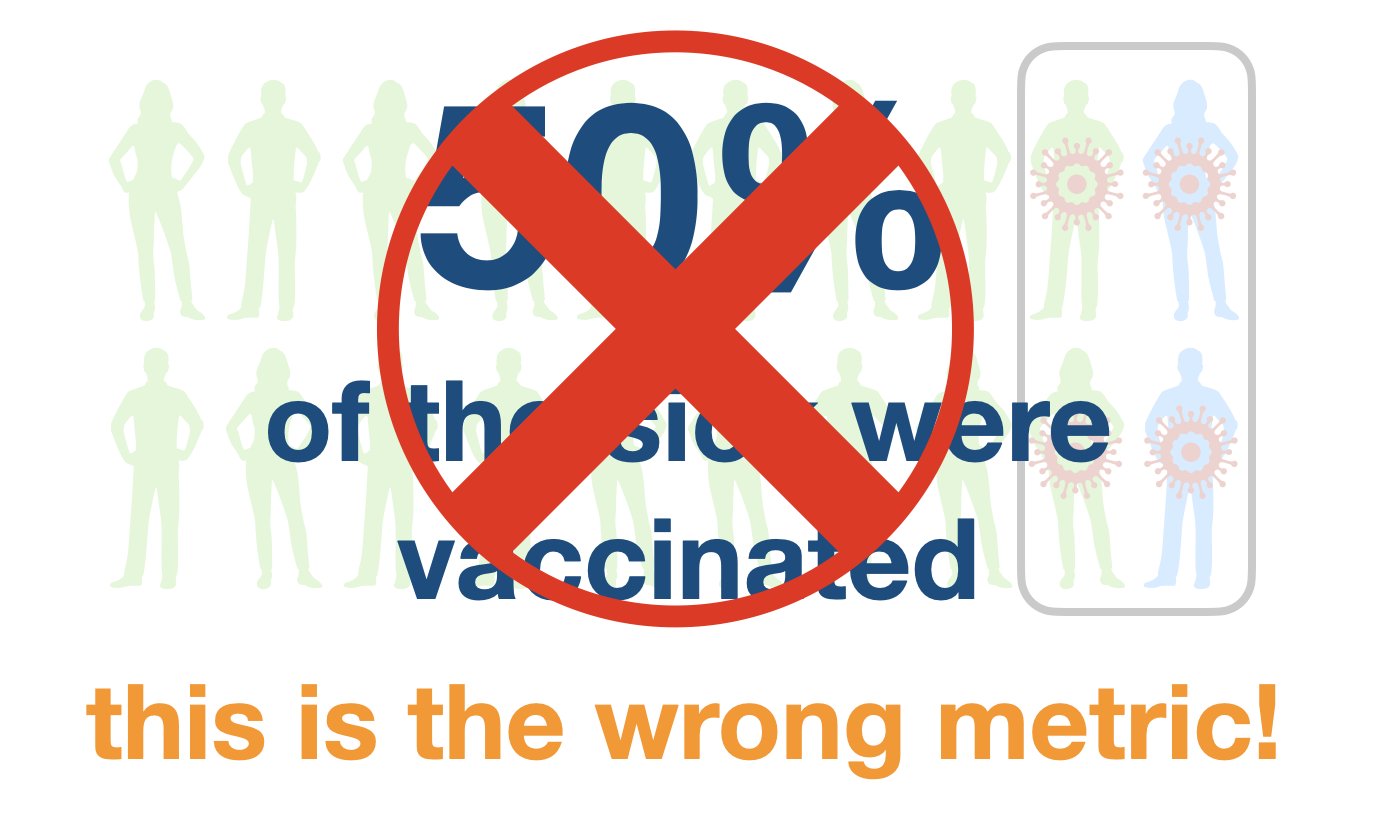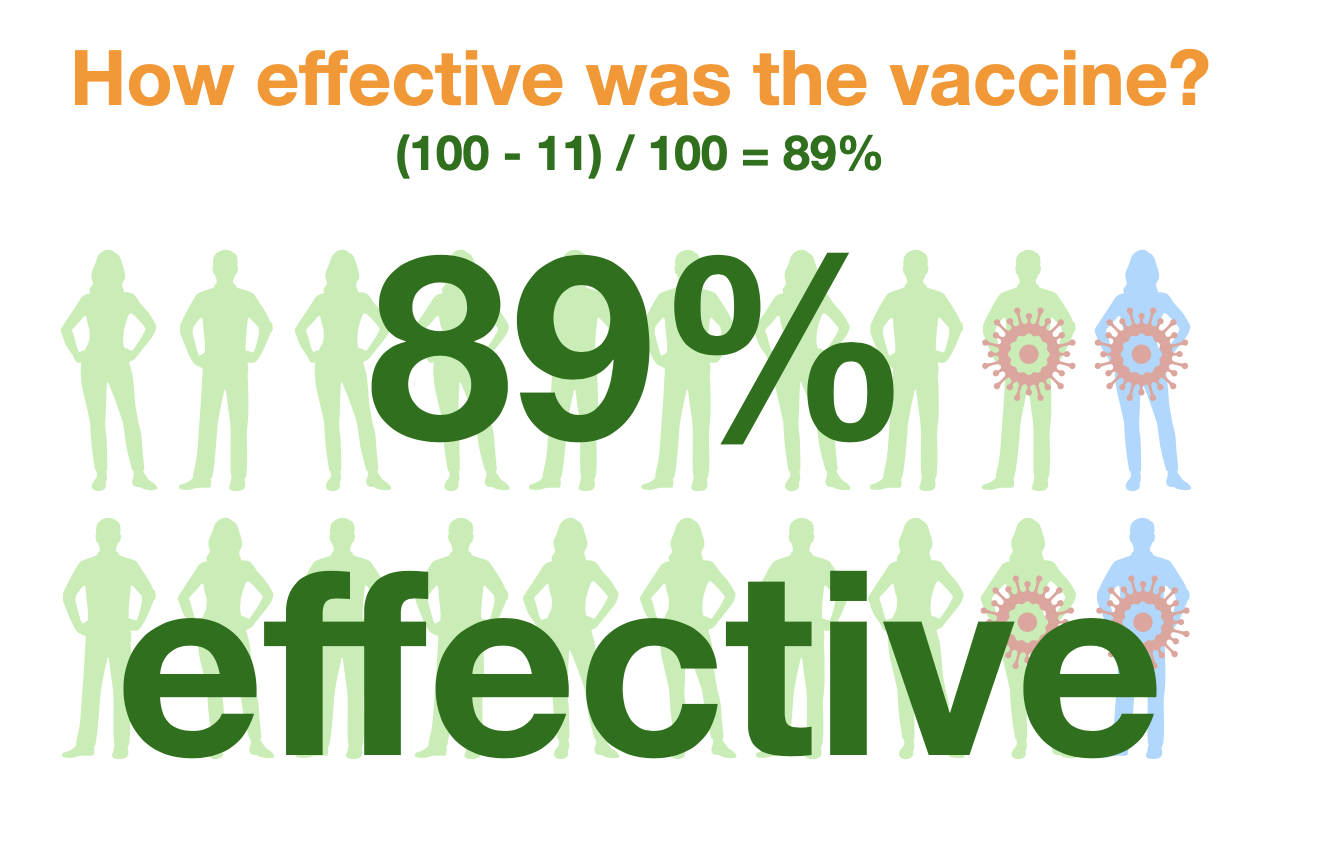Denominators Matter
I’ve seen a lot today about how effective the vaccines are; mistakes aside, lots of folks seem to be mixing up which denominators matter - good thing statisticians LOVE denominators!

If you see something like x% of the sick/hospitalized/deceased were vaccinated, the better the vaccine uptake the scarier this number will seem! It is using the wrong denominator. For example, here is a scenario with 90% vaccination, 4 people got sick: 2 vaccinated 2 unvaccinated:

In this scenario, 50% of the sick were vaccinated, but this is the wrong metric to look at! It is using the wrong denominator. It doesn’t take into account that 90% of the population is vaccinated (yay!). r tufte::margin_note('Even Bill Gates made this mistake when he said he\'d [rather encounter a shark than a mosquito](https://twitter.com/BillGates/status/1118196606975787008).')This is called flipping the conditional (and is a problem that we see all the time!). Instead of looking at the probability of being vaccinated given you are sick, you want to look at the probability of being sick given you are vaccinated.
 What you need to do is look at the rates among the vaccinated and unvaccinated separately, and then compare them. Here 11% of the vaccinated got sick, 100% of the unvaccinated got sick.
What you need to do is look at the rates among the vaccinated and unvaccinated separately, and then compare them. Here 11% of the vaccinated got sick, 100% of the unvaccinated got sick.


We calculate vaccine efficacy as
(risk among unvaccinated - risk among vaccinated) / risk among unvaccinated
so in this case, 89% (yay!)

So in sum, denominators matter! When scrolling past headlines, be sure to think about what denominators are in play!